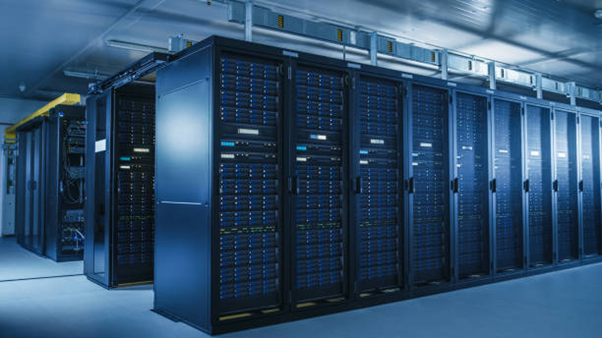Last Updated on: 22nd November 2023, 05:21 pm
Data center security is key to keeping your business safe and compliant. Without proper precautions, such as data encryption, hosting multiple domains on a single server architecture, and robust patch management practices, businesses are literally leaving themselves vulnerable to cyber attacks.
That’s why it’s essential that businesses of all sizes understand the risks associated with poor data center security protocols and maintain best practices for maximum safety and compliance.
In this article, we will explore some of the recommended procedures for maintaining optimal data center security as well as steps you should take in order to remain compliant with relevant regulations. Read on for an overview of best practices for data center security and compliance!
Invest in Good Hardware to Ensure Maximum Uptime
Ensuring maximum uptime for a data center is essential for most businesses, and investing in good hardware can help facilitate this. One of the most important pieces of a high-performance data center is a reliable uninterrupted power supply (UPS).
A quality UPS ensures that any fluctuations or interruptions in power will be smoothly handled without impacting operations. Additionally, it will give you ample time to safely shut down your equipment before any outages occur.
By proactively investing in good hardware such as a data center ups, companies can ensure that maximum uptime is both achievable and sustainable.
Implement Strong Authentication Measures for All Users and Devices
In order to safeguard the integrity of corporate data, it is essential to employ strong authentication measures for all users and devices accessing the data center.
Companies must ensure that authentication processes include two-factor authentication such as biometric scans or fingerprints in addition to a secure password. Strong authentication helps prevent unauthorized access and malicious activities, thereby helping maintain compliance with regulations and industry standards for data protection.
It is important for organizations to make sure these authentication measures are kept up-to-date so that potential threats can be prevented and dealt with quickly.
Use Encryption to Protect Data at Rest and in Transit
Ensuring the security of data is an essential component of a successful data center, but it can often be a daunting task. Encryption is one of the best ways to protect both data at rest and data in transit; when used correctly, it prevents malicious actors from accessing sensitive information stored on your network or devices and it also keeps transmitted data safe from interception or alteration.
Utilizing robust cryptographic tools can greatly reduce the risk posed by many potential security threats, and it is an essential part of achieving compliance with regulations related to data privacy. Implementing encryption measures as part of an overall strategy for data center security and compliance will help keep your business secure.
Monitor Your Network for Suspicious Activity and Respond Quickly to Any Threats
Effective data center security and compliance begins with monitoring your network for any suspicious activity. Unusual traffic, strange user accounts, or systems running out of the ordinary can all be indicative of a problem.
Make sure to have an effective logging and alerting protocol in place so that any suspicious activity is detected as quickly as possible, giving you the opportunity to respond accordingly. Taking appropriate action in a timely manner is essential for maintaining secure data centers and adhering to compliance requirements.
Install Firewalls to Restrict Access to the Data Center From Unauthorized Sources
Installing firewalls is a critical part of ensuring that data centers are secure and compliant. Firewalls act as the first line of defense against malicious activity, blocking out unauthorized individuals who may attempt to gain access and access sensitive information.
By implementing firewalls, organizations can restrict any outside traffic from compromised or malicious sources in order to protect the data center and its resources from harm. Ultimately, firewalls are essential for safeguarding the data center and preventing potential security breaches due to unauthorized access.
Conclusion
To close, keeping your data center secure and compliant is essential for the success of any organization. Establishing a strong security posture through investing in good hardware, implementing strong authentication measures and encryption, monitoring for threats and installing firewalls can give you peace of mind that your data center is well-equipped to keep out the bad actors.
By taking these steps, organizations can not only protect themselves from potential harm, but also stay compliant with industry regulations. When it comes to data center security and compliance, preparedness is key; ensure that all initiatives are taken to keep any sensitive data as safe and secure as possible.



